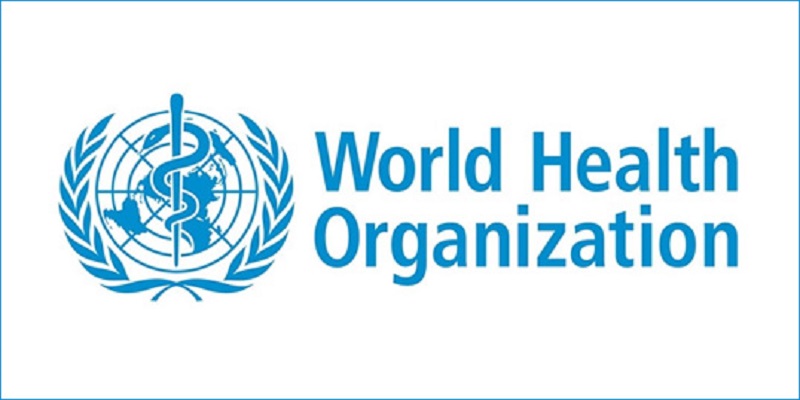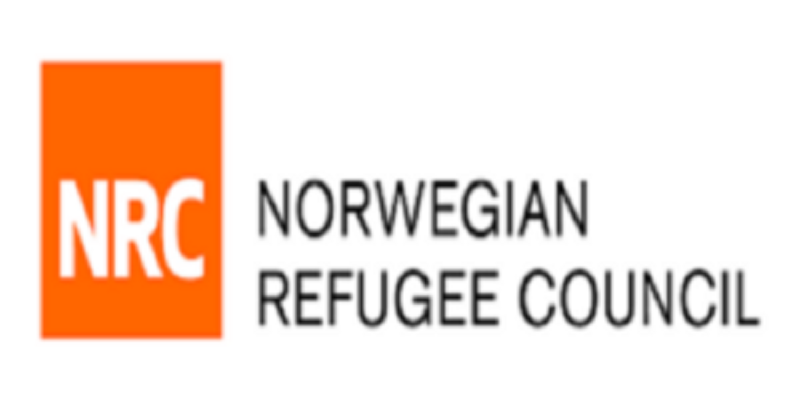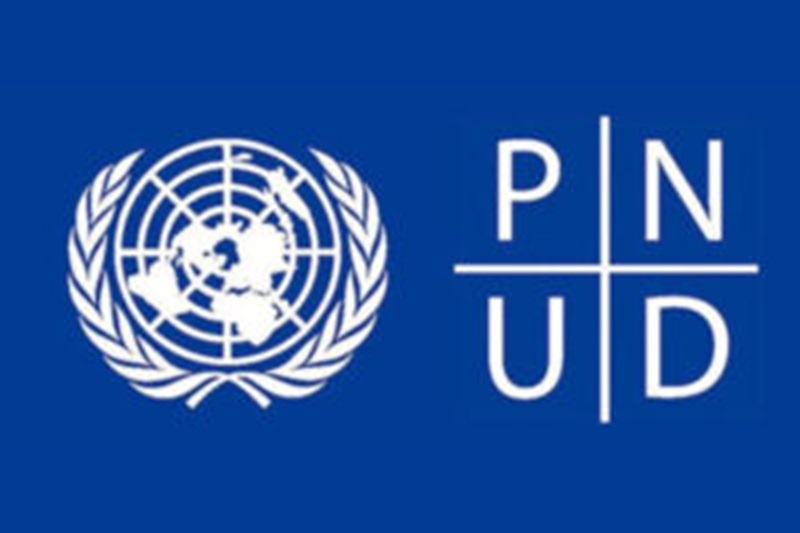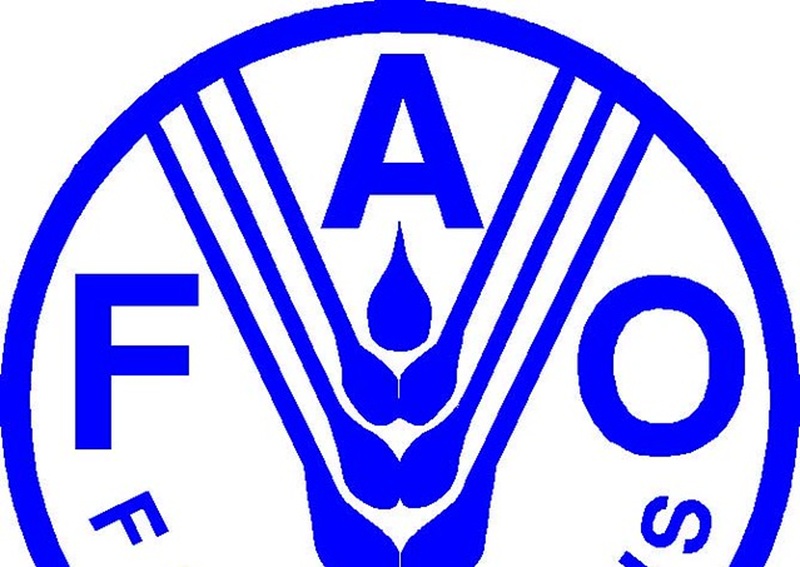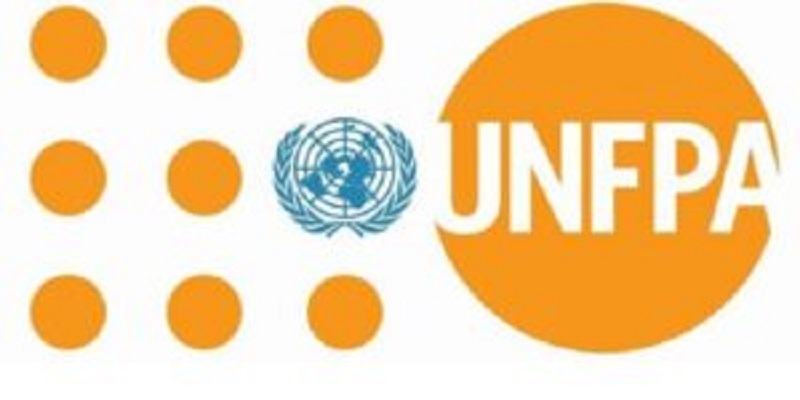L’OMS est une organisation composée de 194 États Membres. Les États membres élisent le Directeur général, qui dirige l’organisation dans la réalisation de ses objectifs de santé mondiale.
POSTE 1
Consultants Nationaux appui technique des activités de vaccination avec le VPO2 au Cameroun
Termes de références
Titre de poste : Epidémiologiste /Santé publique pour la riposte à l’épidémie de PVDVc2 avec le nouveau VPO2
Durée : Trois (3) mois
Lieu d’affectation : Régions du Nord-ouest et du Sud-ouest; Districts de santé du Littoral et de l’ouest frontaliers au Nord-ouest et Sud-ouest.
1. Contexte et justification
Le contexte actuel est marqué par la détection de quatre cVDPV2 détectée au Cameroun dans la Région de l’Extrême-nord, notamment dans les districts de santé (DS) de Goulfey, Fotokol et Kousseri. Il s’agit de trois cas humains et un échantillon environnemental positif. Les virus détectés au Cameroun étaient de même émergence (NIE-ZAS-1), identifiée initialement au Nigeria. La confirmation de ces cas intervient dans un contexte marqué par la comptabilisation au 31 décembre 2021 au Nigeria de 920 cVDPV2 détectés toutes sources confondues dont 767 détectés dans les six derniers mois, dénotant d’une escalade de l’épidémie. Quatre Etats du Nigéria (Borno, Adamawa, Benue et Taraba) frontaliers au Cameroun sont également des foyers épidémiques.
Parallèlement, l’analyse des performances des couvertures vaccinales de routine dans la région de l’Extrême-Nord en VPO3 et VPI restent sous optimales ces trois dernières années par rapport aux objectifs fixés malgré les nombreux efforts fournis.
C’est dans ce cadre que le Ministère de la Santé Publique à travers le Programme Elargi de Vaccination prévoit organiser une campagne de vaccination de riposte en 2 tours dans les 10 régions du Cameroun en synchronisation avec les Etats voisins. Ces campagnes ont pour but de renforcer l’immunité des enfants de 0 à 59 mois y compris les réfugiés et les nomades et de limiter la survenue des cas de cVDPV2 post campagne.
A cet effet, l’OMS propose son appui technique à travers le recrutement de 44 agents de santé qualifiés dans les Régions du Nord-ouest, du Sud-ouest et les Districts de santé du Littoral, de l’ouest frontaliers au Nord-ouest et de Sud-ouest.
2. Description des activités
Sous la coordination générale du Représentant pays de l’OMS et la supervision directe du point focal en charge de la vaccination au bureau OMS-Cameroun, l’agent de santé aura la charge d’appuyer le district de santé d’assignation dans la coordination des activités de vaccination anti poliomyélitique au nVPO2 :
• Avant la campagne
– 100% des réunions préparatoires soient organisées par le district sanitaire (DS)
– 100% des DS atteignent au moins 90% des préparatifs une semaine avant la campagne dans l’outil de suivi des préparatifs (dashboard)
– S’assurer que 100% des DS transfrontalières tiennent au moins une réunion transfrontalière par semaine
– S’assurer que 100% des Aires de Santé font le listing des enfants perdus de vue avant le début des formations et remettent ces listes au relais/mobilisateurs en vue de les récupérer et qu’au moins 80% de ces enfants perdus de vue sont récupérés durant les AVS
– S’assurer que 100% des Aires de Santé font la microplanification détaillée précisant les éléments suivants : la liste nominative des vaccinateurs, des mobilisateurs, des superviseurs des vaccinateurs et des mobilisateurs, des crieurs, des moniteurs de flacons et superviseur de moniteurs, les zones d’accés difficiles et les stratégies spécifiques pour les attendre, le plan de déploiement et de progression de chaque équipe et des superviseurs de J1 à J3
– S’assurer que100% des superviseurs utilisent les check-lists de supervision ODK avant les AVS ;
– Appuyer le DS dans la formation et le briefing des superviseurs de proximité et des équipes de vaccination
– Apporter un appui sur le renseignement et l’envoi quotidien du Dashboard
– S’assurer de l’effectivité et de la qualité de la mob soc;
– Collecter toutes les informations manquantes du DS
– Vérifier que tout ce qu’il faut pour le DS été envoyé (vaccins et intrants, outils de gestion)
– Maitriser les différents outils utilisés
• Œuvrer à ce que pendant les AVS :
– 100% des superviseurs à tous les niveaux utilisent les check-lists de supervision ODK pendant les AVS
– 100% administre le questionnaire de MI ménages à 90 parents/gardiens d’enfants (soit 9 formulaires) par jour pendant les AVS (MI in-process) et fait le feedback à la coordination locale des AVS pour action correctrice
– Appuyer le DS dans l’élaboration d’un plan de travail de supervision et veiller à sa mise en œuvre
– Rappeler les instructions sur la gestion des fonds (Etat, OMS et UNICEF) et les pièces justificatives
– Assister le DS dans le monitoring et l’analyse des données pendant toute la durée de la supervision
– Mener le monitorage interne de qualité et exploiter les résultats
– Appuyer le DS dans la gestion des vaccins et intrants (suivi journalier des flacons,etc)
– Suivre la gestion des cas de refus
– Tenir informé la coordination de l’évolution des activités au jour le jour
– Aider à la synthèse des données/ remplissage des données dans le MASQUE EXCEL
– S’assurer de l’effectivité de la supervision de proximité
– S’assurer de la notification et validation des cas de maladies sous surveillance détectées
– Rechercher et ramener tous les flacons de VPOt (confinement) sur le terrain
• Œuvrer à ce qu’après la campagne :
– 100% des MI recrutés sont indépendants des activités de vaccination et qu’un nouveau recrutement est fait pour chaque round ;
– 100% des MI administrent le questionnaire de MI ménage à 60 parents/gardiens d’enfants (soit 6 formulaires) et le questionnaire MI hors ménages à 30 parrents/gardiens d’enfants (soit 3 formulaires) par jour (MI end-process) et fait le feedback à la coordination locale des AVS pour action correctrice avec le début du LQAS
– 100% des enquêteurs LQAS respectent les grappes tirées au sort par la coordination centrale et que le feedback est fait à la coordination locale des AVS pour action correctrice avant la réunion d’évaluation
– Faire le Débriefing au DS
– S’assurer que les zones mal vaccinées soient revaccinées
– Assister le sous-comité chargé de la coordination et du rapportage dans l’élaboration du rapport final
– Suivre la transmission au niveau supérieur de tous les justificatifs de la campagne
– Ramener tous les rapports manquants (PEVR, Surveillance des maladies, Justificatifs…)
• Coordination et autres considérations
– Exécuter toutes autres tâches liées au PEV qui peuvent être demandées ou confiées par la hiérarchie
– Accompagner les régions dans la mise en œuvre des activités de vaccination de routine et la surveillance des MEV
3. Qualifications requises
• Niveau d’Education
– Essentiel : Diplôme d’études supérieures en santé publique, épidémiologie
– Souhaitable : Formation en vaccination
• Expérience et connaissances professionnelles
– Avoir une bonne connaissance du système de santé du Cameroun et du PEV
– Au moins deux ans d’expérience professionnelle dans le domaine de la vaccination
– Avoir une capacité de préparer, d’animer et de faire la synthèse des rencontres
Être capable de travailler de manière autonome, sous pression et de prendre des initiatives
– Avoir des compétences organisationnelles avancées avec la capacité de gérer plusieurs tâches à la fois
– Avoir une connaissance du package Microsoft Office (Word, Excell, Power point, etc.) et ODK
– Une expérience de travail avec une organisation internationale serait un atout.
• Compétences linguistiques
– Connaissance approfondie (parlée et écrite) de l’anglais ou du français et une connaissance pratique de l’autre.
• Compétences
– Travailler en équipe
– Respecter et promouvoir les différences individuelles et culturelles
– Avoir de bonnes aptitudes en communication
– Bâtir et promouvoir des partenariats dans toute l’organisation et au-delà
– Assurer l’utilisation efficace des ressources
– Être disponible à travailler dans les districts des Régions du Nord-ouest et du Sud-ouest
POSTE 2
Médecin / Point Focal Immunisation
OBJECTIVES OF THE PROGRAMME
The Vaccine Preventable Diseases (VPD) Programme is part of and contributes to the work of the Universal health coverage/Communicable and Non-communicable diseases (UHC/UCN) cluster in the WHO African region. The strategic agenda of the cluster is to reduce disease burden in the WHO African Region, by guiding disease control agenda in Africa, and using analytics to inform strategic investments and tailored interventions for disease control”. This approach is underpinned by the guiding principles of comprehensive whole of society, people centered, integrated approaches to disease control. The comprehensive whole of society approaches to disease control involves: (a) coherent implementation of triple response – technical response: implementing diseases specific normative guidance, promoting intervention mixes and deploying medical commodities; health systems response: building capacities of district service delivery systems in disease mapping and stratification, interventions tailoring, and sector/subsector planning; and multi-sectoral response: addressing socio-economic and environmental determinants of diseases through mobilizing non-health sectors, communities and stakeholders; (b) disease control partnership of public and private sectors, health and non-health sectors; and (c) community involvement in targeted high risk communities, focused on managing determinants of diseases, health services demand creation and accountability by local health stewards. The people centered, integrated approaches to disease control involves: (a) integrated guidance on disease control for each health service delivery platform, a move away from stand-alone disease specific guidance; and (b) integrated and efficient disease control investments in strengthening the capacity of appropriate health services delivery platforms through deployment of appropriate technologies and analytics to guide stratification of diseases risks across population groups, development and deployment of comprehensive packages of interventions appropriate for each population group and for each health service delivery platform, and monitoring population access, coverage and impact to leave no one behind.The specific objectives of the UCN cluster and to which the VPD programme contributes, are to: (i) provide leadership on disease control coordination, partnership and resource mobilization; (ii) contribute to the development of WHO disease control technical products, services and tools including adoption of new technologies and innovations; (iii) support generation and use of strategic information for action and decision making including optimizing investment; and (iv) provide or facilitate provision of technical support in deployment of WHO technical products and services and institutional capacity building, including support to national disease programmes and regulatory authorities.
DESCRIPTION OF DUTIES
The incumbent is expected to contribute towards:Leadership on disease control coordination, partnerships, and resource mobilization through: •Building and coordinating a competent and committed team of VPD experts in the development and implementation of strategic and operational initiatives for VPDs control, elimination and/or eradication in the sub-region; •Developing and/or maintaining partnerships on VPDs with relevant bodies in the sub-region including appropriate Regional Economic Communities (RECs); •Advancing sub-regional VPDs advocacy, resource mobilization and optimization of VPDs investment efficiency;•Conceptualizing, formulating, implementing and monitoring bold strategic initiatives on VPDs in the sub-region;•Developing annual “Sub-Regional Disease Outlook” independently or as part of a regional enterprise.Development of WHO disease control technical products, services, and tools through: •Contributing to discussions on priority VPDs Target Product Profiles based on identified country and sub-regional disease control needs;•Strengthening research and innovation that contribute evidence for developing and/or deploying WHO VPDs products and services in the sub-region;•Coordinating the development and dissemination of scientific papers on VPDs as well as multiyear reports on VPDs in the sub-region; •Supporting evaluation of interventions and tools to inform deployment or enhanced deployment of WHO VPDs technical products and tools in the sub-region;Generation of analytics-driven strategic information for disease control agenda setting and interventions tailoring through: •Monitoring socio-political and health situations in member states, facilitating political and social analysis for health action in the sub-region; •Supporting development of capacities for analytics to drive VPDs and other diseases control agenda setting and to guide investments; advocating and supporting use of triangulated data on disease occurrence (incidence and mortality), interventions coverage, health services access, determinants information, to developed tailored national policies and operational responses in member states of the sub-region;•Mainstreaming of GER in VPDs service delivery in the sub-region;•Supporting surveillance systems strengthening and tracking of biological and other threats using available VPDs tools and interventions and using the same information for threat containment in member states of the sub-region. Technical support and institutional capacity building for disease control support through: •Disseminating VPDs technical products and tools in the region, advocating for their rapid deployment in member states of the subregion and in accordance with WHO guidance and local contexts;•Facilitating appropriate technical support in the implementation of WHO VPDs technical products and services in the sub-region, including guidance on comprehensive, whole of society approaches, as well as people-centered and integrated approaches to VPDs and disease control investing; •Coordinating investment of VPDs and other disease programme resources in strengthening health services delivery platforms to deliver optimally for disease control in the sub-region; •Mapping and prioritizing institutions and capabilities in member states of the sub-region for the purpose of WHO capacity institutional capacity strengthening towards domesticating provision of technical, operational research, analytics and training support to member states of the sub-region under WHO oversight, for VPDs and other priority diseases; contributing to managing partnerships and collaborations with the prioritized institutions and to strengthening their capacities;•Strengthening WHO collaboration with the national public health institutes (NPHI) in member states of the sub-region and specialized networks on VPDs, with the aim of facilitating coherence and collaboration;•Perform any other duties as assigned by the supervisor.
REQUIRED QUALIFICATIONS
Education
Essential: Advanced university degree in medicine or health-related science with post-graduate degree in public health.
Desirable: Post-graduate training in epidemiology or social science.
Experience
Essential: •A minimum of ten (10) years’ progressive experience in developing, designing and implementing public health programmes, including VPDs especially in vaccine development, planning, implementation and/or M&E of immunization programmes, with a minimum of 5 years inclusive at the international level in Low and/or Middle-Income countries; •Experience in overseeing implementation, review and updating existing strategies and guidelines and recommending new initiatives;•Experience in resources mobilization and working with variety of partners at international level;•Experience in facilitating coordinated approaches to effective programme management and implementation;•A track record of research, with publications at senior authorship level in academic journals.
Desirable: Experience in epidemiology, and disease control in Africa combined with a sound understanding of the requirements of major immunization partnerships.
Skills
•Extensive experience in thought leadership, problem solving approaches, and use of the logical framework in health programme development; •Extensive knowledge of policies, strategies and programme interventions related to VPD with broad practical knowledge of related programmes, policies and strategies and their application in developing and developed countries; •Proven leadership skills in the planning and coordination of multidisciplinary public health programmes, which should include the implementation of VPD control programmes; •Demonstrated expertise in strategic and multisectoral planning; research; performance monitoring, as applied to programmes and reporting; extensive knowledge and skills in use of data and information for decision-making and strategic planning; track record of recognizing and addressing changing conditions; •Working knowledge of WHO rules and procedures, mandates, strategies and action plans (global, regional and country-specific);•Budgeting and financial management; partnership and resource mobilization; communication and people management;•Ability to exercise leadership and to work effectively with colleagues at national and international levels.
WHO Competencies
Teamwork
Respecting and promoting individual and cultural differences
Communication
Knowing and managing yourself
Producing results
Creating an empowering and motivating environment
Use of Language Skills
Essential: Expert knowledge of English.
Desirable: Intermediate knowledge of French. Intermediate knowledge of Portuguese.
REMUNERATION
WHO salaries for staff in the Professional category are calculated in US dollars. The remuneration for the above position comprises an annual base salary starting at USD 90,664 (subject to mandatory deductions for pension contributions and health insurance, as applicable), a variable post adjustment, which reflects the cost of living in a particular duty station, and currently amounts to USD 4110 per month for the duty station indicated above. Other benefits include 30 days of annual leave, allowances for dependent family members, home leave, and an education grant for dependent children.
ADDITIONAL INFORMATION
- This vacancy notice may be used to fill other similar positions at the same grade level
- Only candidates under serious consideration will be contacted.
- A written test may be used as a form of screening.
- In the event that your candidature is retained for an interview, you will be required to provide, in advance, a scanned copy of the degree(s)/diploma(s)/certificate(s) required for this position. WHO only considers higher educational qualifications obtained from an institution accredited/recognized in the World Higher Education Database (WHED), a list updated by the International Association of Universities (IAU)/United Nations Educational, Scientific and Cultural Organization (UNESCO). The list can be accessed through the link: http://www.whed.net/. Some professional certificates may not appear in the WHED and will require individual review.
- Any appointment/extension of appointment is subject to WHO Staff Regulations, Staff Rules and Manual.
- Staff members in other duty stations are encouraged to apply.
- For information on WHO’s operations please visit: http://www.who.int.
- WHO is committed to workforce diversity.
- WHO prides itself on a workforce that adheres to the highest ethical and professional standards and that is committed to put the WHO Values Charter into practice.
- WHO has zero tolerance towards sexual exploitation and abuse (SEA), sexual harassment and other types of abusive conduct (i.e., discrimination, abuse of authority and harassment). All members of the WHO workforce have a role to play in promoting a safe and respectful workplace and should report to WHO any actual or suspected cases of SEA, sexual harassment and other types of abusive conduct. To ensure that individuals with a substantiated history of SEA, sexual harassment or other types of abusive conduct are not hired by the Organization, WHO will conduct a background verification of final candidates.
- WHO has a smoke-free environment and does not recruit smokers or users of any form of tobacco.
- WHO has a mobility policy which can be found at the following link: http://www.who.int/employment/en/. Candidates appointed to an international post with WHO are subject to mobility and may be assigned to any activity or duty station of the Organization throughout the world.
- Applications from women and from nationals of non and underrepresented Member States are particularly encouraged.

